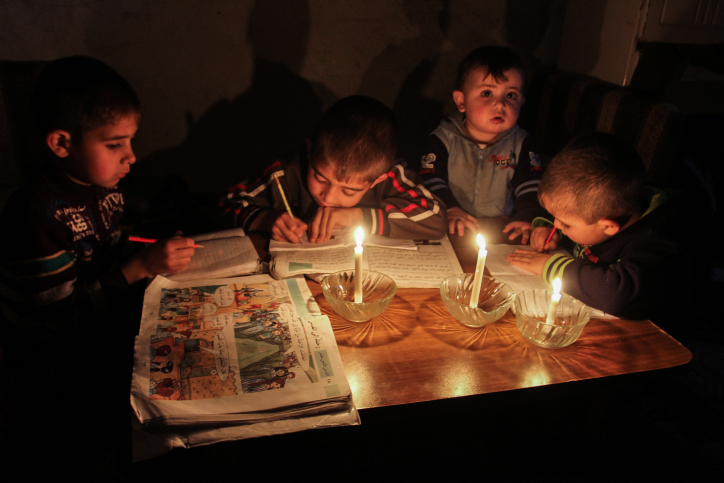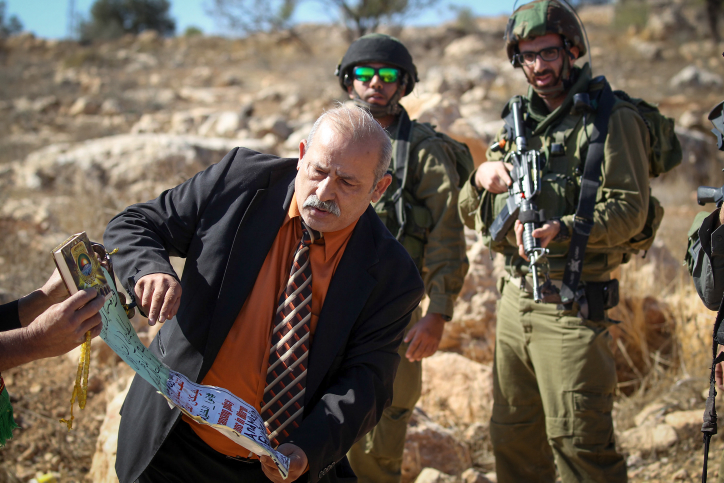We refuse to listen to what human rights groups say about the West Bank and Gaza Strip because we do not want to admit we are ultimately responsible.
By Assaf David

How does Israel, its institutions, its academy, and its mainstream media, understand the goings on the Palestinian side? Through the crosshairs, of course.
This is not new, but these crosshairs are located in the wider context of Israel’s political institutions. This aspect deserves a closer analysis, since the discourse surrounding these institutions contains a kind of knowledge that molds our consciousness, while erasing knowledge of a different kind.
Are Fatah and Hamas reconciling? Hoards of academics and media figures will analyze every statement, every personality, every move, trying to place them in their political, tactical, or strategic context. Trump, Egypt, Russia, Iran, Saudi Arabia, Qatar, Mahmoud Abbas, Mohammed Dahlan, Haniyeh, Sinwar, Islamic Jihad, Salafi, Sunni, Shi’a.
But life is more complicated than personalities, organizations, and political moves. Haaretz recently interviewed Palestinian-Israeli psychologist Mohammed Masour, who volunteers with Physicians for Human Rights. Mashad travels frequently to Gaza, describing the horrifying reality in the Strip. Chaos rules, disrupting long-accepted customs and behaviors in Palestinian society, including between men and women.
Meanwhile, we stew in our ignorance. The information we are exposed to in academia and the media surrounds Abbas and Dahlan jockeying for power, jihad and Iran, Salafists and Hamas. One tries to screw the other over, some are weaker than others, that’s why they signed an Egyptian-backed reconciliation agreement, but who know if they really mean it.
But what don’t we know? Everything human rights organizations have been persistently telling us for years. All those organizations, silenced by the government and the Knesset at home, yet proudly displayed for all the world to see in the fight over international minds.

Human rights organizations allow us to prove that Israel is the only democracy in the region. And anyone who doesn’t like it can go to Gaza, along with these groups. These are groups that tell us what is happening on the ground. We do not want to see it, hear it, or read it. Take them away from us, because we are uncomfortable with the fact that, in the end, this is our fault.
Yes, our fault. We deny an entire nation its national rights, and in order to ensure that our victory is permanent, we also deny human rights to the individuals who make up this nation. That is why we are responsible. We are signatories to this chaos, even if we are not the only ones behind it.
When was the last time you saw a politician, political commentator, or academic — all of them “professional,” “apolitical,” and “neutral” — analyze what is happening in the West Bank and Gaza on the basis of reports and statistics provided by human rights groups in the field?
You didn’t. Because in order to maintain the twisted worldview that we have built for ourselves, it is important to continue looking down from above — at politics, institutions, internal rivalries between different groups. Heaven forbid we look at the people themselves, those who are crushed under the weight of the boot, who live a life that grows more and more miserable until things explode — like they did with Mohamed Bouazizi in Tunisia.
Apart from denial, we cannot expect a thing from politicians on the Right. But we can ask left-wing politicians, media personalities, and academics: want to start somewhere? Perhaps you should start including information provided by human rights groups about the West Bank and Gaza in your analyses. Not only in order to give these groups public legitimacy, but because this is the only information that gives voice to the people you are talking about. The only information that turns them into human beings.
Let’s begin with this. The rest, inshallah, will come on its own.
Dr. Assaf David is a founding member and director of the Forum for Regional Thinking. He teaches at the Department of Political Science at the Hebrew University of Jerusalem. This article was first published in Hebrew on Haokets. Read it here.

